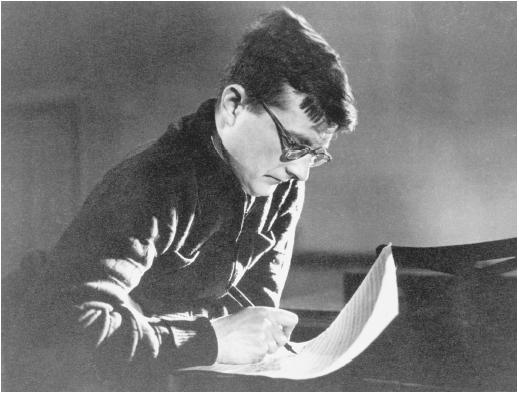
In a previous post I talked about Abram Room's 'A Severe Youth' as displaying an alternative route towards which Soviet cinema never went. Yet there are many such films- Eggert's 'Bear Wedding' in the mid 1920s suggested a possible path into horror and fantasy which would become non-existent for decades until the late 1960s with the film Vij. One of the most difficult to categorise figures in Soviet cinema is ,of course, Boris Barnet. It wasn't only Jacques Rivette who thought of Barnet so highly to see him as a kind of alternative pole to Eisenstein in Soviet cinema. Many comments by Naum Kleiman suggest an equally elevated view of Barnet's genius. It is, of course, hard to pick one of Barnet's masterpieces. There are many outstanding films although 'Okraina' or 'Outskirts' has generally thought to have been his greatest success. Nonetheless, now with the release of 'Miss Mend' on DVD and a reappraisal of Soviet classics of the silent period, 'The House on Trubnaya Square' has also had its champions. Nonetheless, I want to concentrate in this post on another film that has both its champions and its detractors 'By the Bluest of Seas'.
In fact this film has almost had no serious champions outside southern Europe. Henri Langlois was an early fan as were some of directors of the French New Wave, it has been shown occasionally on Italian TV (under the rubric of Ghezzi's 'Fuori Orario') and recently was shown in the Spanish Filmoteca in Madrid. Yet Barnet in spite of his English ancestry has not had the kind of reception that he deserves in the anglo-saxon world.
'By the Bluest of Seas' appears almost as a miracle given that it was made around the time of the preparation for the Great Terror. If it is, as one critic has argued, a film about desire and fidelity its oniric advocacy for yearning and desire makes it one of the most incongruous films of the period. Barnet was deemed the 'Peter Pan' of Soviet cinema and thankfully for future generations this was true. His inability to shoot an ideologically serious film means that there is almost no bombast and all ideologically correct scenes collapse in a kind of absurd gag-like denouement. In 'By the Bluest of Seas' there is barely any single ideologically correct pointer (let alone whole scene). If the Kolkhoz is called 'The Flames of Communism', communism has been tranformed into a island in which production targets and Stakhanovite enthusiasm are absent. The two outsiders - Alyosha and Yusouf - seem to arrive from nowhere and the wording on their documents have been wiped out owing to their shipwreck. No suspicion here of potential saboteurs. Moreover, Alyosha's day off work (owing to lovesickness) provokes Yussouf into a overtly jealous-ridden denunciation of his friend in front of the Kolkhoz members. Yet no one is listening. Desire is given precedence over duty in this film.
The gags come thick and fast and each time they undermine any serious intent. Even the shipwreck and resurrection of Masha soon becomes the excuse for another gag in which Youssouf is being ditanced from his love. The two main characters who arrive in this matriarchal utopia have neither origin nor destination, nor any particular goal or mission. Their blanked out documents only emphasises, their absolute alienness to the Stalinist reality.
Soviet critics at the time were more critical of the scriptwriter, Klimenti Mints. His 'emotional scenario' (like those of Rzhevesky) was a strange interlude of evasion from the ironclad script of the Soviet era. Nonetheless, many showed impatience at Barnet for taking up this 'empty' script. Naive, futile, simplistic, deprived of motivation, empty were all judgements that critics used for the film. The most damning criticism was made by Nikolai Otten who stated that the characters in the film appeared from 'outside the concrete circumstances of our country and our epoch'. He went on to complain that Barnet relied on traditional imagery typical of western cinematography, fatally slipping into ideological sources of American cinema and gives James Cruze's film 'Clipped Wings' (1930) as precursor.
Rather a more recent interpretation of the film by Nicole Brenez links it to Jean Vigo's 'Atalante' and Buster Keaton's 'College' and sees it as a study in the cinegenesis of desire which returns cinema to its origins in 'live performance, circus, acrobatics, vaudeville, gymnastics'. The presence of Meyerhold actor Sverdlin emphasises this gestural performance bringing out burlesque tones at their most sublime.
Barnet's future work would include many (as yet) undiscovered masterpieces- his work with Volpin and Erdman on 'The Old Jockey', the superb 'Alyonka' were actors like Shukshin and Garin display their skill at its best as well as some fascinating films made during the second World War with very few resources. Even his look back at the early years of the Revolution in his 'The Poet' is a far more interesting than is usually given credit for. Nonetheless, 'By the Bluest of Seas' remains, in many ways, the greatest miracle. Imagining utopia in Stalin's Soviet Union was an unusually subversive act.


















